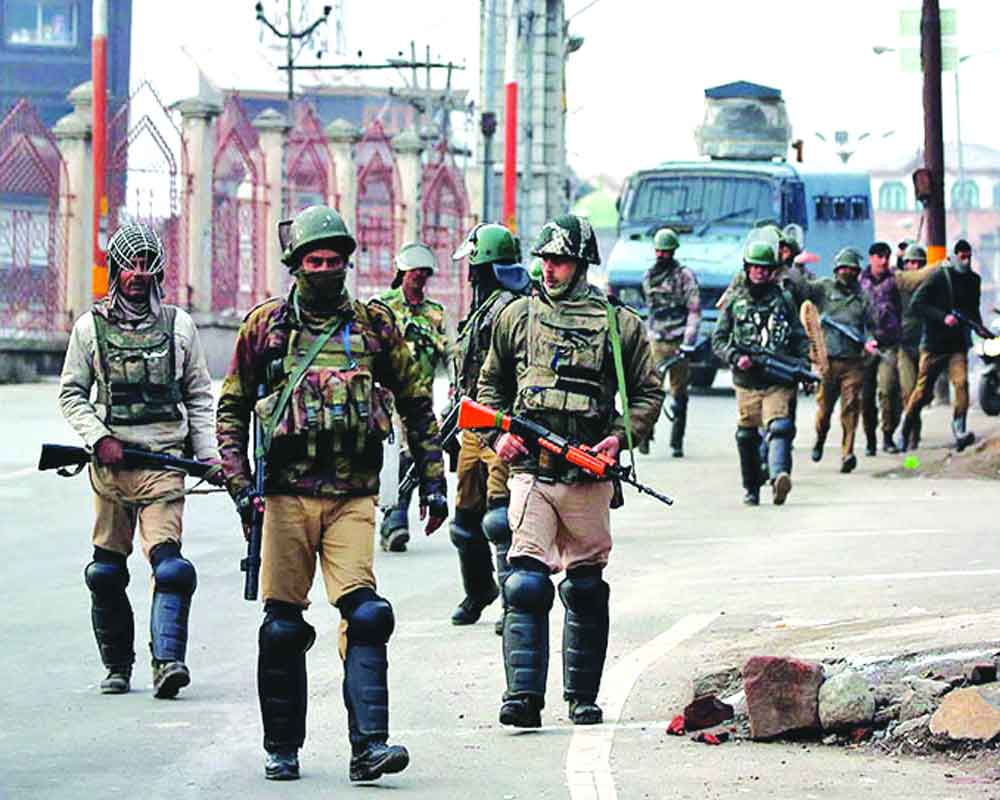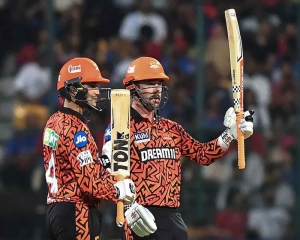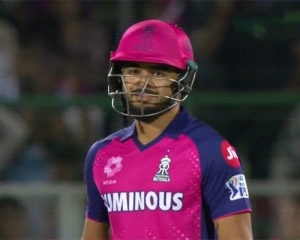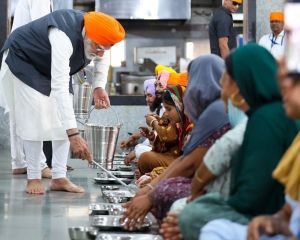A fresh look at police system is required; the top-down approach should go and cadre system be revisited
The soul of policing in India still belongs to the British Raj. The police were the instruments of the British Raj to lord over the subjects. Seventy five years have gone by since Independence, yet policing remains jaded and rusted. The police forces are essentially taken as means of providing employment. The time has changed. The pattern of crime has changed. Society has changed. The means and modes of crimes have changed. Yet, the policing remains the same.
Policing gaps led to creation of several agencies, with specific mandates to address issues of inter-state crimes. The principal culprit of the rotten policing system is said to be political interference. In some states, political workers of ruling parties are more effective than the state police. The people in place of going to the police knock at the doors of such political workers.
Robin Hoods carved out their respective territories, and became the custodians of justice for the victims in the true spirit of the laws of the Jungle that the powerful lords over the weak subjects. One may single out Bihar for such Robin Hoods, but their breed holds grounds in several states, inspiring the Mumbai industry to make films after them.
Indeed, registering an FIR remains a herculean task, as the police remain firm to ask the complainants to write plain paper complaints and forget them. An FIR would call for filing a charge-sheet by conducting investigation, and there isn’t time for the police to engage in meticulous tasks. The alibi is obvious that the police forces are overburdened. A major chink of them is deployed for the security of the VIPs. Such alibis existed two decades ago; they exist now, and they may still be offered another two decades later.
The time is running out and the police reform requires a fresh look, for the people aren’t the same, who would helplessly lament their fate. The people seek accountability. Law and order has become the principal poll agenda in several states. Also, policing has to be modern, because the inter-state crimes now have transnational ramifications. There are too many dots in policing that cannot be left for the police personnel to brood over in the darkness.
Law and order is a state subject. This on the lines of agriculture remains the main stumbling block for any reform. The police reform has been attempted several times. Scores of committees were set up. They gave their reports. Heavy volumes of such reports afterwards gathered dusts. The Supreme Court too tried its hands to force reforms on the states.
The National Police Commission was set up in 1979. In 1996, two retired DGPs moved the Supreme Court for implementation of its reports. The apex court in 1998 set up the Ribeiro Committee and in 2000, the Padmanabhan committee. This paved the way for the Soli Sorabjee Committee to draft the new model police bill. In the Prakash Singh case, the Supreme Court in 2006 gave its order, binding the states and the union territories with seven directives. The apex court set up a two members committee to monitor implementation of the seven directives. The core mantra of the seven directives was to ensure that there is no political interference in the functioning of the police.
Over the years, it has been found that the non-compliance of the seven directives of the Supreme Court ranged from 57 to 80 per cent. The directives were procedural in nature such as fixed terms for the district police heads, transparent appointment of the director general of police, stability of tenure of the personnel, process-based transfer and posting, establishment of police complaint authority, separation of investigation and law and order functions.
Now that the aspirations of the people, which were reflected in the constitution of the first commission in 1979, remain unfulfilled even while India celebrated the 75th anniversary of Independence, the occasion calls for drastic measures.
To begin with, policing must be process-based, and the training and the career progress of the personnel from bottom to top of the hierarchy be linked to the tangible performance on duty. It has to be admitted that the British Raj policing was top to bottom approach, which has survived seven and a half decades in the country. The time has come to just reverse it, and make it bottom to top.
This can be done if ‘Kaptan-based’ policing is given a fresh look. Someone who has been very studious, who cracks one examination in a course of two to three years, becomes the head of the district police set up is erroneous. Let us open the channel that someone who dares to take bullets on his chest, and relentlessly skills on the job with training be shown the path to climb the hierarchy ladder fast.
The police academy at the Central level and their branches in each state should be entrusted with the task of rapid training and skill with modern policing, while arming them with the latest gadgets so that one police person can function as a mobile police station. The task of the academy should be to train the manpower in policing in such a manner that they discharge their duties on the basis of a laid down process, which is well-publicised and visible that minimizes the interference of anyone, including the political dispensations.
The career graph of the police personnel be compulsorily linked to the conviction rates in cases dealt by them, and also the verifiable crime statistics in their jurisdictions — beats, blocks, tehsil, mofussil, district, and state. The National Crime Research Bureau states that the conviction rates of all the law enforcement agencies put together come to about 70 per cent. This is despite the fact that not all complaints are converted into FIRs.
Thus, it will be worthwhile to see if a police person who has a record of 80 per cent or less under his or her jurisdiction be compulsorily retired after 10 years of service. This can act as a force multiplier along with the norm that each complaint be automatically converted into an FIR, and
all the relevant statistics be displayed prominently at the police stations, roundabouts and railway stations.
It will be equally important to ensure that the service rule reforms for the Indian Police Service (IPS) be attempted, with clear aims to check the political abuse of the police forces. This can be done by ensuring that no IPS officer works in a state for more than seven years, and the Centre should dissolve the permanency of the cadre system.
With this, when an IPS officer comes to the Centre for deputation in another state, his service records should be the basis for his or her retention in the services, and if they are not up to the mark they should be compulsorily retired. Thus, a cadre should be of just seven years, and it should become dynamic with rotation of the officials.
Indeed, there will be a need for an authority at the Centre to oversee such functions of policing, which should be done with a mandate from Parliament.
(The author is Director, Public Policy Research Centre.)


























